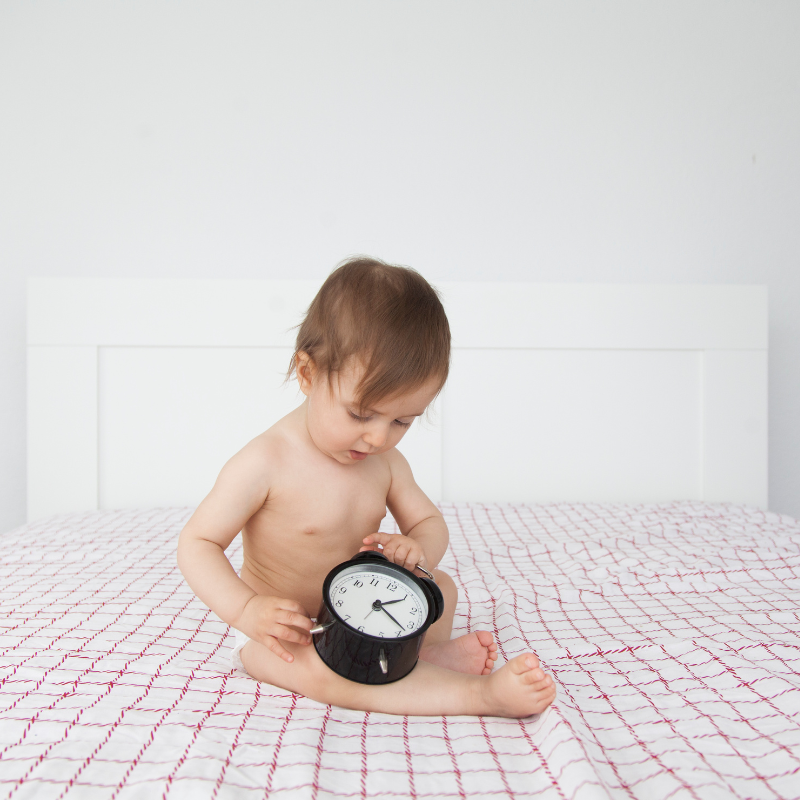
Our bodies work in line with a 24-hour cycle or a ‘circadian rhythm’. During each 24-hour period, our different bodily systems perform tasks that help us function the best we can. For example, after we wake up, our body releases certain hormones that make us feel hungry to prompt us to eat and other hormones that help us break down and digest that food. These processes slow down during sleep. In the same way, as adults, we typically don’t empty our bowels overnight. When functioning properly and in the right cycles, the body is cleverly designed to clear out during the day so all we need to do at night is sleep.
One of the most important influences on this internal clock is light, which is why we typically spend the daylight hours awake, and we sleep when it’s dark.
As a parent, one of your jobs is to establish a routine that works WITH your little one’s natural rhythm by setting up a consistent wake-up time each morning and a consistent bedtime each night. It’s important for you to do this because it’s not something they can do themselves, and when their wake and sleep times are off, their other body systems can’t work optimally. And as you already know, consistency helps everyone know what to expect.
Many parents are surprised to learn that the ideal wake-up time is the same for most people. Your baby or child should, as most babies and toddlers do, wake up between 6am and 7am each day. This timing aligns with their natural rhythm. A baby or child who still naps will also sleep at various points throughout the day when they’re tired, following periods of being awake, while an older child will stay awake from morning until bedtime.
Unlike ideal wake-up times, ideal bedtimes vary according to a person’s age based on how the amount of sleep we need changes as we grow. I cover these in more detail in both my Foundations First™ Sleep Course and my Age Basics™ eBooks, but very generally, infants, babies and younger toddlers need a continuous 12–13-hour stretch of sleep overnight – with or without feeds, depending on their age, and older toddlers and preschoolers will need slightly less. This means that when your little one starts the day between 6 and 7am, their body will start winding down and getting ready for their long stretch of sleep between 6 and 6:30pm, which makes the ideal bedtime for infants, babies and younger toddlers 6pm, and around 6:30pm for older toddlers and preschoolers.
If you have a baby or child who naps and you find it difficult to get them down at the ideal 6-6:30pm bedtime, you will need to make sure they aren’t waking from their nap too late in the afternoon. This will ensure they have the perfect amount of awake time before going down for the night.
Establishing these ideal timings consistently will help your little one’s natural body clock fall into place beautifully. The older they get, the less sleep they’ll need overnight and you’ll need to adjust their bedtime, but this will happen very gradually.
A consistent early bedtime might feel restrictive at first, but I promise you implementing it will be the best thing you ever do. The better your little one sleeps, the better they’ll handle those occasional days when you go off routine – and that will make life easier for the whole family!
The information in this video relates to healthy babies and children with no undiagnosed, untreated medical issues or concerns. If you have any concerns about the health of the baby or child in your care, please see their GP or paediatrician.
For more sensible, straightforward, safe advice and resources on getting your family the sleep you all deserve, explore my website – sleepbysteph.com.au